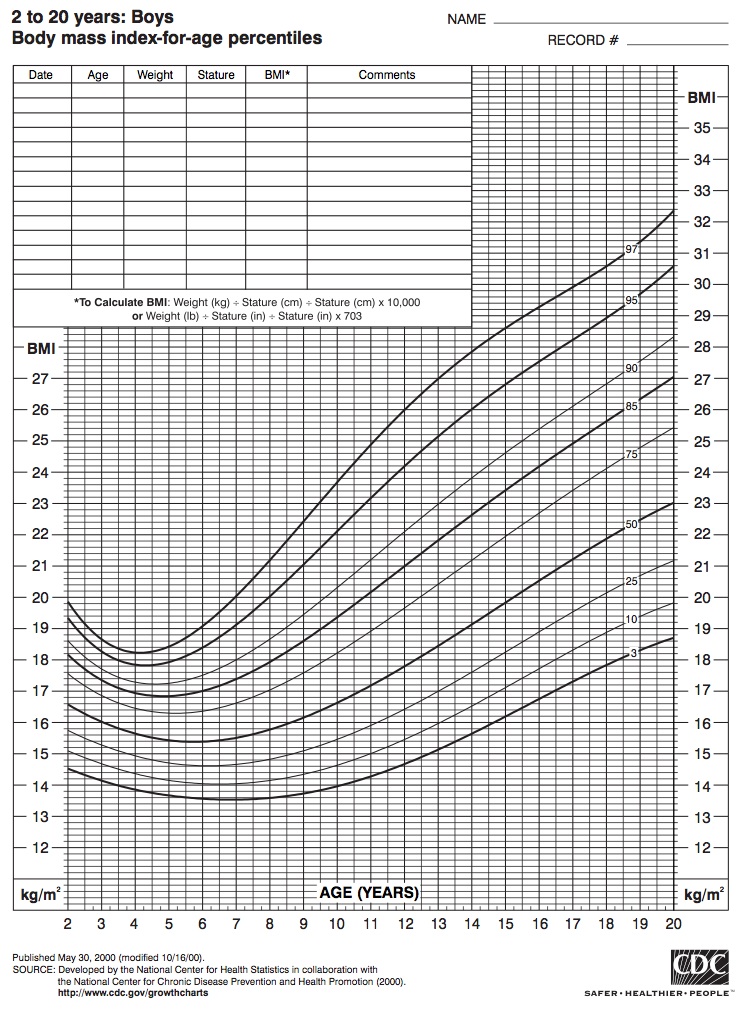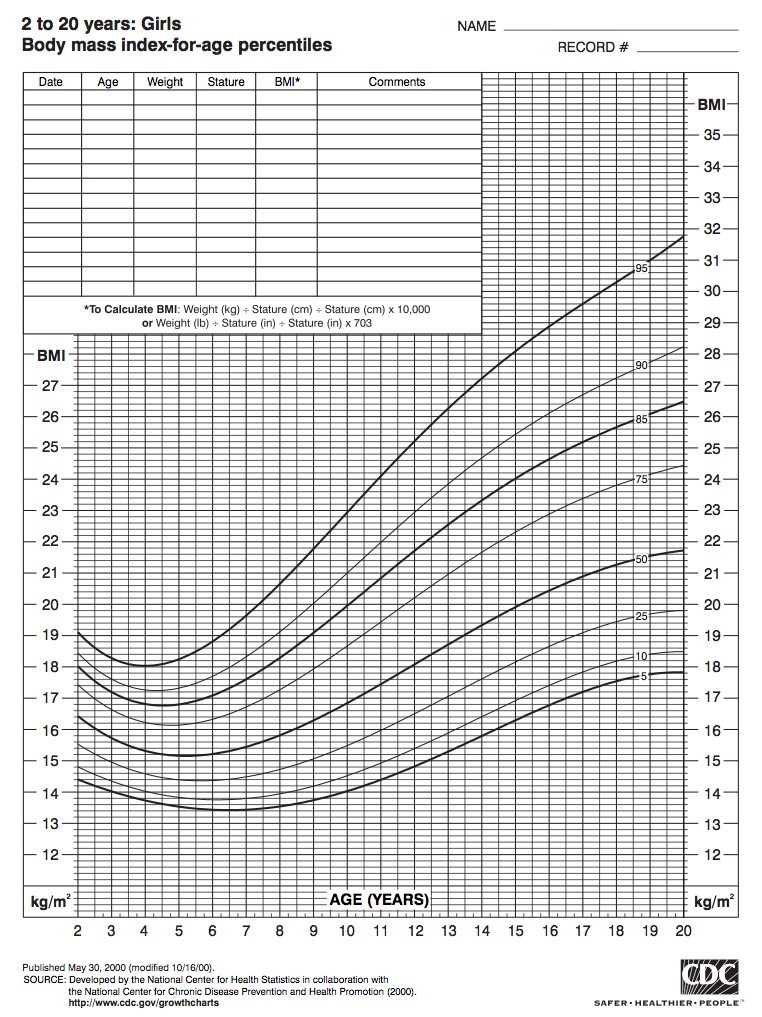BMI Calculator
Calculator Use
The BMI Calculator finds the body mass index given weight and height. Calculate your BMI and find the BMI weight category for your height. The calculator also finds the normal weight range given your height.
Calculate BMI with weight in pounds, stones or kilograms. Enter height in inches, feet and inches, meters or centimeters.
BMI Formulas
Divide weight by height squared to find BMI. Note that you need to use kg and meters the standard units for the BMI formula are kg and meters. If you need other units of measure the calculator will convert among units for you.
In metric units, using kg and meters:
BMI = weight ÷ height2
- In metric units: BMI = weight (kg) ÷ height2 (meters)
- In US units: BMI = weight (lb) ÷ height2 (inches) * 703
What is BMI?
The body mass index or BMI is a ratio of mass to height. It is calculated as kg per square meter or pounds per square inch of height. Numeric BMI values correspond to weight categories including underweight, normal, overweight and obese.
BMI is used as an indicator of the relative healthiness of a person. The Centers for Disease Control (CDC) and the World Health Organization (WHO) recognize that people who are overweight or underweight are at higher risk for certain health conditions. BMI also enables health professionals to discuss bodyweight objectively with their patients.
Calculate Adult BMI
The CDC and WHO use the BMI range charts below to evaluate the weight of adults aged 20 and over given his or her height. These ranges typically apply to North American and Eurpoean populations. Wikipedia lists alternative BMI ranges and categories for specific Asian populations. Cut-off points for specific international subpopulations may vary.
It's important to keep in mind that the generic BMI chart above does not account for differences between men and women. It is also limited in evaluating bodyweight health in people of short stature, or those who have very high muscle mass.
Calculate Child and Teen BMI
The CDC recommends using a BMI-for-age calculation in children and teens between 2 and 20 years of age. Children's body fat varies with age, and boys and girls grow at different rates. So while the BMI calculation is the same for boys and girls as well as adults, there are separate BMI growth charts for boys and girls.
How to Calculate BMI
Using metric units, where weight is in kilograms and height is in meters, divide weight by meters squared.
In US units, where weight is in pounds and height is in inches, divide weight by inches squared. Then multiply this figure by 703.
Example 1: Calculate BMI in metric units
Matilda weighs 64 kg and is 1.9 meters tall. What is her BMI?
Divide 64 by 1.92
- BMI = w ÷ h2
- BMI = 64 ÷ 1.92
- BMI = 64 ÷ 3.61
- BMI = 17.7
Example 2: Calculating BMI in US units
Stanley weighs 184 lb and is 5 feet, 10 inches tall. What is his BMI?
Find total inches by multiplying 5 * 12 and add 10. Divide weight by total inches squared and multiply the result by 703.
- 5 feet, 10 inches = 70 inches
- BMI = (w ÷ h2) * 703
- BMI = (184 ÷ 702) * 703
- BMI = (184 ÷ 4900) * 703
- BMI = 0.3755 * 703
- BMI = 26.4
Although BMI is calculated the same way worldwide for all ages, the way an individual's BMI is interpreted depends on location and the person's age.
- In many Southeast Asian countries, the thresholds for the overweight and obese categories tend to be lower. For example, in Singapore and Hong Kong a BMI of 23.0 is considered overweight, whereas in the United States a BMI of 25 is considered overweight.
- Children and adolescents are not evaluated using these thresholds but are evaluated relative to others of the same age and gender. See the charts above.
Keep in mind that BMI is a ratio between height and total body weight - it does not differentiate between weight from muscle and weight from fat, nor does it consider an individual's body frame type. BMI is one of several tools used to assess a person's weight and overall health. If you are concerned about your weight, it is best to consult with your doctor or healthcare professional.
Normal Weight Range
Normal weight BMI is 18.5 to 24.9. To calculate your normal weight range use the following:
- Metric units:
minimum weight (kg) = 18.5 × height2 (m)
maximum weight (kg) = 24.9 × height2 (m) - US units:
minimum weight (lb) = (18.5 ÷ 703) × height2 (in)
maximum weight (lb) = (24.9 ÷ 703) × height2 (in)
References
- "Body Mass Index," Wikipedia, The Free Encyclopedia.
- "Healthy Weight," Centers for Disease Control and Prevention.
- "About Child and Teen BMI," Centers for Disease Control and Prevention.

